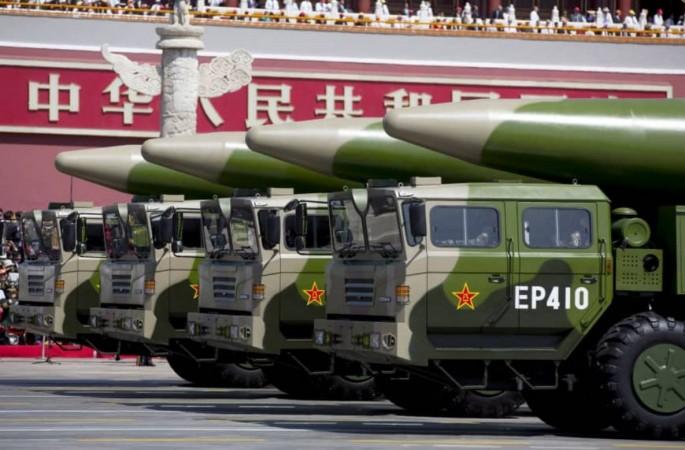
China threatened to take countermeasures against the United States if it deploys intermediate-range, ground-based missiles in the South China Sea, a Chinese foreign ministry official said on Tuesday.
China "will not stand by idly" and allow the US to establish its missile base in Asia, said Fu Cong, the Director-General of the arms control department at China's foreign ministry.
"If the US deploys missiles in this part of the world, at the doorstep of China, China will be forced to take countermeasures," Fu said. "I urge our neighbours to exercise prudence and not to allow the US deployment of intermediate-range missiles on their territory," he added.
The statement by the Chinese official came after response to the US Defence Secretary Mark Esper on Saturday said that he was in favour of placing ground-based, intermediate-range missiles in the Asian region.
The US exited the 1987 Intermediate-Range Nuclear Forces (INF) treaty with Russia last week. The treaty banned ground-launched nuclear and conventional ballistic and cruise missiles with ranges between 500 and 5,500 kilometres.
The six-month withdrawal process was initiated after Russia's Novator 9M729 cruise missile violated the treaty's terms. NATO also supported the US position.
The United State's withdrawal from treaty will allow Washington to develop its military assets especially in comparison to the advanced Chinese military capabilities. The bilateral treaty with Russia is said to have limited the US weapons development, especially sophisticated land-based missile force.
Last week, Trump also said that he is willing to consider a new arms control agreement but it has to include China. "I think we are going to end up making a deal with Russia where we have some kind of arms control because all we are doing is adding on to what we don't need and they are too. And China is trying to catch us both," Trump told American TV network C-Span.
China has declined to be a part of the weapons treaty and has argued that the size of China's arsenal does not match the US capabilities.
"Given the huge gap between the nuclear arsenals of China and that of the US and the Russian Federation, I don't think it is reasonable or even fair to expect China to participate in an arms reduction negotiation at this stage," Fu said.
The foreign ministry official on also called upon "neighbours", naming Australia, Japan and South Korea to "exercise prudence and not to allow a US deployment of its intermediate-range missiles on [their] territory."
China has expanded its military capabilities by deploying a large number of intermediate-range missiles on the South China Sea that has disturbed the Indo-Pacific region including India.
The Trump administration has condemned China of displaying its aggressive military stance in the region. It has also said to have triggered an arms race in the region.
While the latest statement by the US Defence Secretary did not specify where the US intended to deploy the weapons, experts have said the most likely location for deployment in the US island of Guam in the Pacific Ocean, which hosts significant US military facilities, reported Reuters.














